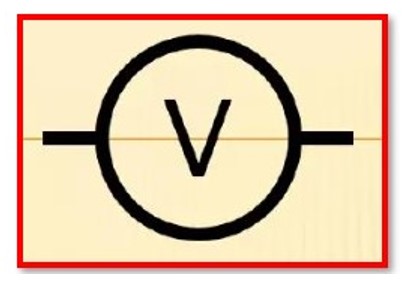What is Voltage?
Voltage is defined as the potential energy difference between two places that will produce one joule of energy per (for every) coulomb of charge that passes through it. Voltage is measured in “volts” and represented by V.
SI unit of Voltage:
The volt (V) is the SI unit for measuring electric potential difference.

How is Voltage measured?
A device called “voltmeter” is used to measure voltage (V), which is the potential difference between any two locations in a circuit. A voltmeter must be connected in parallel with the component whose voltage want to be measured in order to measure voltage (potential difference).
Formulas to determine Voltage:
Formula 1:
According to Ohm’s law, voltage may be expressed as,
Voltage = Current x Resistance

Formula 2:
The consequence is the transmission of power, which is the result of supply voltage and electric current.

By applying I=V/R into the equation above, and we get,


As a result, voltage is equal to power divided by current. Arithmetically,

Formula 3:
According to the equation

voltage is the square root of the sum of the power and resistance. Arithmetically,

Why are voltage values mentioned on most electric appliances?
Voltage is a representation of the operating voltage on which the entire design was based. The operating voltage has a significant influence on the current consumption and, consequently, the overall power.Current often is the outcome whereas voltage frequently is the independent controlling factor.










